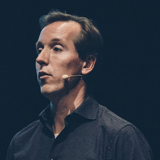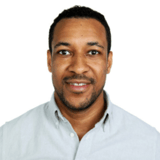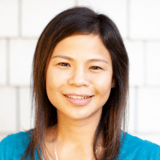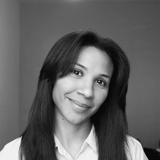Summary
Chris welcomes attendees to the Advancing Research conference in New York, sharing his personal East Coast roots and current ties to the city. He stresses the importance of naming the trauma caused by the pandemic and massive layoffs within the research field to move forward collectively. The conference purpose is to enhance strategic influence of research within organizations to combat extractive practices and increase impact. Chris credits co-curators Gem and Lou for innovating the speaker selection process through panel discussions that shape the conference themes. The day’s agenda features Neil Berry discussing connecting product and brand through cultural trends, Andy War urging the unification of research functions, and Nini Kajaro sharing her experience moving research out from under UX for greater influence. Robin Beers encourages shifting research focus towards understanding company culture for broader impact. After lunch, Fatima Richmond shares a vision of research operations as engines of strategic influence, Peter Levin challenges traditional research categorizations by promoting solving present problems, and Trisha Wang closes with a provocative perspective on researcher roles amid AI’s rise. Chris closes with a personal note on sobriety, urging inclusivity at the conference’s social events and reminding attendees of quiet rooms and support options for neurodivergent, new parents, or those observing religious practices, fostering an environment of welcome and care.
Key Insights
-
•
Naming collective trauma from the pandemic and recent layoffs is essential for the research community to move forward.
-
•
There is an urgent need for research teams to gain greater strategic influence within their organizations to counteract exploitative practices.
-
•
Unifying research functions under one umbrella can strengthen organizational influence and cohesion.
-
•
Separating research organizations from UX departments can enhance the research team’s ability to influence company decisions.
-
•
Focusing research not only on product insights but also on the culture of the organization can drive broader impact.
-
•
Research operations should be envisioned as strategic engines that drive influence within organizations.
-
•
Solving immediate, practical problems can reveal greater organizational possibilities beyond the tactical/strategic research divide.
-
•
Researchers need to reconceive their relationship with emerging AI technologies, aiming to shape rather than just use them.
-
•
A collaborative, iterative speaker preparation process, though challenging, improves the quality and cohesion of conference presentations.
-
•
Creating an inclusive conference environment supporting sobriety, neurodivergence, new parents, and religious observers strengthens community bonds.
Notable Quotes
"We need to name the trauma in order to move forward."
"Layoffs wiped out 20, 50, even 75% of research teams in profitable companies."
"Evidence-based strategies focused on human beings may hold the key to breaking free from exploitative practices."
"Product and brand are two sides of the same coin, tied together through cultural trends."
"Unifying research functions under one umbrella gives us more influence in organizations."
"Removing research from underneath UX has increased our ability to influence at Salesforce."
"We need to turn our skills toward observing the culture of the companies we’re in."
"Research operations can and should be engines of strategic influence."
"The best entry point to organizational influence is solving the problems right in front of us."
"Researchers must be shapers of AI technology and not simply users of it."
Or choose a question:
















More Videos

"More ways to contact support—chat, email, phone—are essential because different disabilities require different options."
Sam ProulxOnline Shopping: Designing an Accessible Experience
June 7, 2023

"Career managers develop close relationships with designers and advocate for staffing and promotions on their behalf."
Ignacio MartinezFair and Effective Designer Evaluation
September 25, 2024

"Pairing up as design soulmates was the first foundation that made all the difference for Signified’s design journey."
Sarah Kinkade Mariana Ortiz-ReyesDesign Management Models in the Face of Transformation
June 8, 2022

"Companies today are embracing these principles, seeing the value of user connection and self-actualization for business success."
Daniel GloydWarming the User Experience: Lessons from America's first and most radical human-centered designers
May 9, 2024

"We’re moving from theory of change to theory of service: starting with what people actually need before creating anything."
Patrick BoehlerFishing for Real Needs: Reimagining Journalism Needs with AI
June 10, 2025

"Our AI tools help with speed and efficiency, and also help save money by reducing redundant research."
Andy Barraclough Betsy NelsonFrom Costly Complexity to Efficient Insights: Why UX Teams Are Switching To Voxpopme
September 23, 2024

"How do we as designers connect more deeply with the policy world? That’s still a developing thing."
Alexandra SchmidtWhy Ethics Can't Save Tech
November 18, 2022

"The greatest sin of the designer is to say I have the answers and no one else is allowed to have them."
Louis RosenfeldDiscussion: What Operations can teach DesignOps
November 6, 2017

"Previously, IBM designers were inventing their own buttons for every product, which exasperated chaos and inconsistency."
Mitchell BernsteinOrganizing Chaos: How IBM is Defining Design Systems with Sketch for an Ever-Changing AI Landscape
September 29, 2021
















